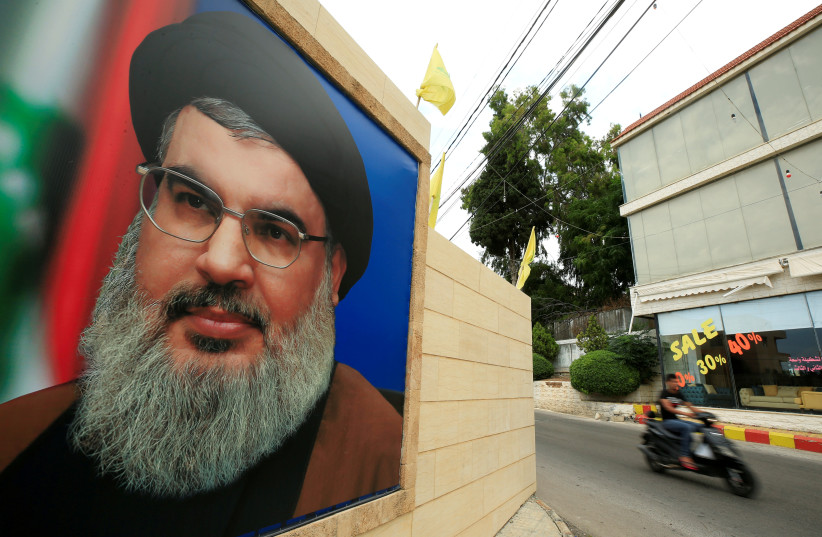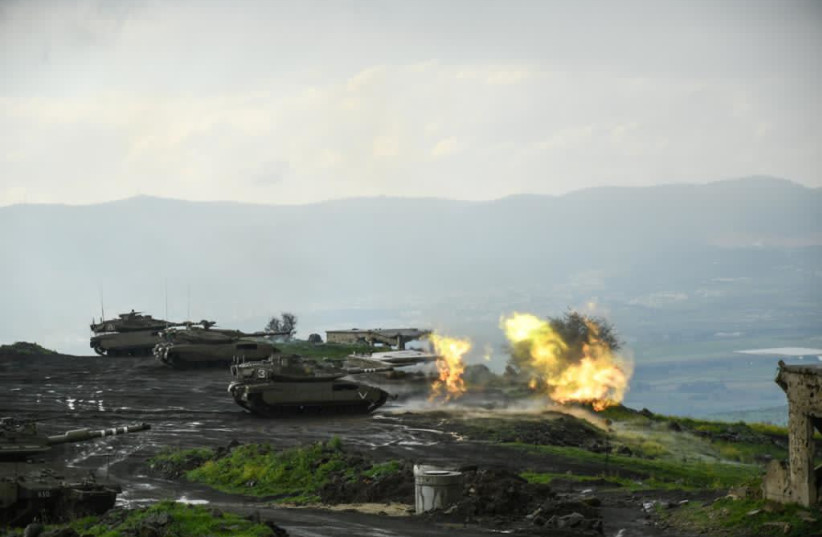Lt. Col. (Res.) Sarit Zehavi founded the Alma Center four years ago with one goal in mind: to explain the situation of Israel’s tense northern border.
Zehavi opened Alma – an organization that gives briefings on Israel’s security challenges on the northern border – in the bomb shelter of her home and named it after her eldest daughter.
One year later, Zehavi, who served 15 years in the IDF’s Military Intelligence division, opened the research center in northern Israel. With a team of seven who are gathering information, analyzing, translating, and mapping the research, Zehavi also gives briefings along the borders of Lebanon and Syria.
See No. 44: KKL-JNF's Powerful Boss
See No. 46: Revolutionizing Online Shopping
See full list
Download full magazine
See 2020's list
Before the outbreak of the global coronavirus pandemic, ALMA was giving tours to about 50 delegations per month.
The delegations are not Israeli – that’s not ALMA’s audience – but foreign delegations of policy makers and other influential individuals who are curious about Israel’s North.

“When I was in the army, I served in a lot of roles in the Northern Command, and I heard that they were looking for an intelligence officer who could give briefings to delegations in English,” she told The Jerusalem Post. “When I left the army I understood that I had a gift to explain really difficult situations in a simple manner.”
Like Zehavi, most of the staff at the ALMA center live in the North.
“And the fact that I live in the North makes it really personal,” Zehavi said. “I see the border everyday, I see the Iranian flags.”
Three days after Hezbollah fired a barrage of 20 rockets toward northern Israel, Zehavi said “I know exactly where the rockets landed. Today on the way to work I saw just how bad the burning was from the fires caused by the rockets. No one is writing about that.”
Another motivation behind her work is the issue of human shields.

“The IDF can solve our security problems, be it in Gaza or Lebanon, in a few days, but they aren’t able to because of the human shields,” she said, referring to the innocent civilians living in areas where Hamas and Hezbollah have stockpiled their missile arsenals.
“It’s hardly reported, and people don’t understand how difficult these dilemmas are, and how people can live with sirens and under rocket fire. People are not exposed to what it’s like to live here. They don’t know the context of why Israel carried out their attacks.”
ALMA has released dozens of reports in the past year, including one that uncovered close to 30 missile launching sites belonging to Hezbollah in civilian areas in the Lebanese capital of Beirut.
The report found that the never-before-published sites concentrated mainly in Hezbollah-dominated areas of Beirut are related to the launch, storage, and production of the group’s Fateh 110/M600 medium-range missiles, and those subject to the Hezbollah missile precision-guided missile project (PGM’s).
ALMA also released a report this past year disclosing Hezbollah’s presence in southern Syria as much larger than previously revealed to the public by the IDF, with some 58 sites where the terror group’s Southern Command and Golan Project have been deployed.
According to Zehavi, the ALMA Center is even more crucial with the tensions rising along the northern borders.
“There is nothing like ALMA – it’s a think tank and an education center,” she said. “The fact that there is tension now makes my mission even more important. We need to give the context.”
So with Israel’s northern front heating up, you can find Zehavi doing what she does best: educating.
